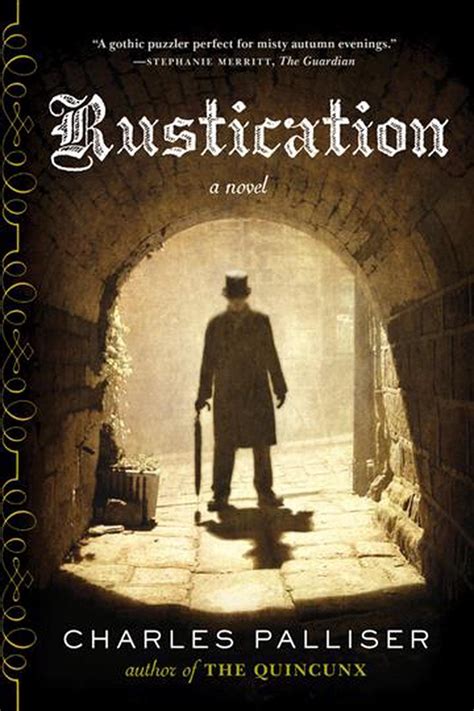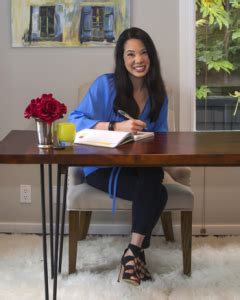A Quote by Charles Palliser
For me, it would be pointless to write a novel that I knew I could complete within a specific length of time. I could do that only by repeating something I had done before, and I've never wanted to do that.
Related Quotes
I would like to die peacefully with Thomas Tallis on my iPod before the disease takes me over and I hope that will not be for quite some time to come, because if I knew that I could die at any time I wanted, then suddenly every day would be as precious as a million pounds, if I knew that I could die, I would live. My life, my death, my choice.
I wanted to write and then I saw Pierrot and I understand that I could express myself in a more... Also probably, I had an intuition that if I was going to only write, I will stay in one room all the time and never go out. I felt that if I was going to make movies, I would have to communicate with people and it would be good for me.
His gaze burned into mine, like he could see past my eyes into parts of me no one had ever seen, and I knew I was seeing the same in him. No one else had ever seen him so vulnerable before, like if I pushed him away, he might crumble into pieces that could never be put together again. Yet there was strength, too. He was strong beneath that fragile need, and I knew that I could never fall with him next to me. If I tripped, he would catch me. If I lost my balance, he would find it.
The look he gave me...My stomach quivered in that exact same way when I watched Before Sunset, yearning for a guy to know me so deeply and truly, we were only really complete when we were together. That I could talk, go on wild tangents, make obtuse references, and he would divine my meaning before I knew what I was trying to say myself. Erik had fallen asleep next to me on the couch, complaining later that the movie was "just people talking." He had no idea that this movie could have been a love letter written for me.
I had a lot of great lakes of ignorance that I was up against, I would write what I knew in almost like islands that were rising up out of the oceans. Then I would take time off and read, sometimes for months, then I would write more of what I knew, and saw what I could see, as much as the story as I could see. And then at a certain point I had to write out what I thought was the plot because it was so hard to keep it all together in my head. And then I started to write in a more linear way.
You had to stay awake married to him [Humphrey Bogart]. Every time I thought I could relax and do everything I wanted, he'd buck. There was no way to predict his reactions, no matter how well I knew him. As he'd said before our wedding, he expected to be happily married and stay that way, but he never expected to settle down. He liked keeping people off balance. He was good for me -- I could never be quite sure what he would do.
She rested her head against his and felt, for the first time, what she would often feel with him: a self-affection. He made her like herself. With him, she was at ease; her skin felt as though it was her right size.. It seemed so natural, to talk to him about odd things. She had never done that before. The trust, so sudden and yet so complete, and the intimacy, frightened her.. But now she could think only of all the things she yet wanted to tell him, wanted to do with him.
Naturally, you don't sit down in "white hot inspiration" and write with a burning flame in front of you. But since I knew I could never be happy being anything but a writer, and Mockingbird put itself together for me so accommodatingly, I kept at it because I knew it had to be my first novel, for better or for worse.
I've always known that I've wanted to write, but I always saw myself doing that in the context of something other than film, so it was a really beautiful and kind of perfect moment in my life when I realized that I could combine this idea of wanting to write and tell my own stories with the environment I had grown up in and knew well - that I could make film as opposed to writing being a departure from what I knew.
Each memory was brought to life before me and within me. I could not avoid them. Neither could I rationalize, explain away. I could only re-experience with total cognizance, unprotected by pretense. Self delusion was impossible, truth exposed in this blinding light. Nothing as I thought it had been. Nothing as I hoped it had been. Only as it had been.
Still, I kept writing. I had no guarantee that I would someday win awards for writing. Heavens, the only person during that time who seemed to think I could write something worth publishing was my loyal husband. But I always remembered the professor from graduate school who urged me to write and who recommended me for that first writing assignment in 1964. When I protested to Sara Little that I didn't want to add another mediocre writer to the world, she gently reminded me that if I didn't dare mediocrity, I would never write anything at all.







































